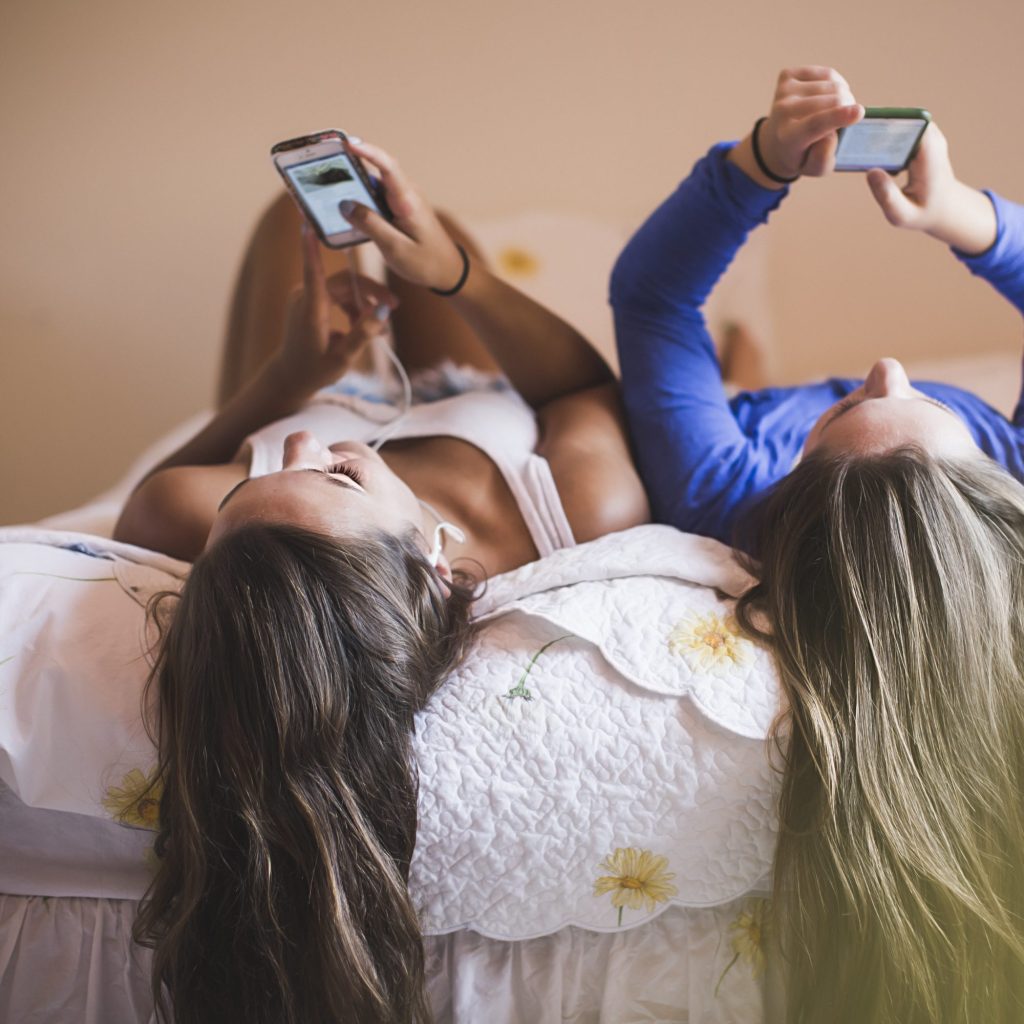It’s no secret that messages around disordered eating, diet culture, and fatphobia tend to manifest on social media. Cultural beliefs around beauty, desirability, health, and value have historically found a home in expressions of identity, art, and pop culture, and social media is where those forces collide. A classic example is the blog platform Tumblr, notably popular amongst teenage girls in the early 2000s. In its heyday, Tumblr was infamous for its pro-ana (or “pro-anorexia”) content, often explicitly encouraging eating disorders or hiding behind thinly-veiled claims of “thinspiration.” Tumblr has attempted to censor posts that promote or glorify harmful behaviors, but as people jump from one social platform to another, it’s nearly impossible to confront such content in any meaningful or more permanent way – especially when toxic diet culture has married itself so seamlessly with more the opaque ideals of wellness culture.
Now, some people are concerned TikTok has replaced Tumblr as the go-to destination for disordered eating content. A new study published in the journal “PLoS ONE” analyzed 1,000 TikToks from 10 popular nutrition, food, and weight-related hashtags, then conducted a theme analysis of the 100 most-viewed videos. The findings paint a stark picture, as the most prevalent themes included the “glorification of weight loss, the positioning of food to achieve health and thinness, and the lack of expert voices providing nutrition information.”
Harder to swallow is the fact that social media is often just an outlet for the beliefs, behaviors, and body insecurities incubated in so many young people throughout their lives – before ever getting a phone, making a post, or scrolling through a “For You” page.
Most of the posts studied were created by white women, either teenagers or young adults. Less than 3 percent of these posts were considered weight-inclusive, with the vast majority representing a weight-normative (i.e. thin-is-best) view of health.
The researcher’s ultimate conclusion was unsurprising: this kind of content “may contribute to disordered eating behaviors and body dissatisfaction in the young people that are TikTok’s predominant users.”
Related: The Cute-ification of Mental Illness is Back With “Crying Makeup” and We Don’t Love to See It
In these types of conversations, it’s easy to point fingers at social media and claim that the platforms themselves are to blame for perpetuating diet culture and eating disorders. But generations of young people, before social media, have struggled with food-related mental health conditions. Certainly, social media has a place in the conversation; never before has the proliferation of harmful messaging been possible at such an incomprehensible, instantaneous scale. But harder to swallow is the fact that social media is often just an outlet for the beliefs, behaviors, and body insecurities incubated in so many young people throughout their lives – before ever getting a phone, making a post, or scrolling through a “For You” page.
The algorithm is no help, either. When a user interacts with one piece of content, they’ll soon receive a cluster of similar content – which, in practice, can feel like a bombardment of harmful content, even if you only “liked” or watched a single post. TikTok’s algorithm has been criticized as a “rabbit hole” of dangerous content, particularly for minors. In 2021, TikTok announced the platform was testing ways to break up these groups of potentially problematic content and adding features to let users customize content settings. But these efforts may be too little, too late.
Related: Ending All Food Restrictions Helped Chloe Cherry Move Past an Eating Disorder
This is heavy information, and it can feel daunting to acknowledge that the platforms many of us use to connect with friends, unwind, or laugh can also have a darker underbelly. But there is a potential saving grace. At the same time that social media perpetuates diet culture, it also speaks back and undermines it. The body positivity and body neutrality movements took off on social, and there are so many certified health experts using the platform to speak about weight loss, dieting, and fatphobia in productive, educational ways. The best thing you can do? Work to curate your feed, follow accounts from reputable sources, unplug every once in a while, and seek professional mental health resources IRL if you need the support.

